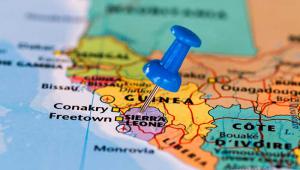The programme is financed by a $7m grant from the World Bank’s International Development Association fund, a $300,000 grant from the United Nations Children’s Fund (UNICEF) and $1m from the Sierra Leonean government itself.
The World Bank said regular cash transfers would be provided to 21,000 extremely poor households, helping 126,000 people, including children, Ebola survivors, and other vulnerable people. These cash transfers would make it possible for families to buy food, send children to school and protect assets such as livestock.
Social and economic progress in Sierra Leone has stalled following the Ebola outbreak, which resulted in many deaths, loss of livelihoods and income, delayed schooling and left a number of children orphaned, the bank noted.
Saidu Conton Sesay, chief of staff to President Ernest Bai Koroma, said the social safety net programme would help Sierra Leone achieve its ‘Agenda for Prosperity’ ambition of reaching middle-income status by 2035 by raising more households out of poverty.
‘It will strengthen coordination and implementation of social protection programs that improve nutrition and health services, and access to education, in order to break the inter-generational cycle of poverty,’ he said.
Francis Ato Brown, World Bank country manager for Sierra Leone added: ‘Continued progress in [building a coherent social safety net system]... will become even more crucial in view of the devastating impact of the Ebola outbreak and as the country transitions back to the Agenda for Prosperity. The bank remains committed to supporting the government in these efforts.’
Roeland Monasch, UNICEF’s representative in Sierra Leone, added that the organisation would continue to work with the government and other partners in defining long-term national financing strategies to protect and expand spending on effective social protection programmes.







